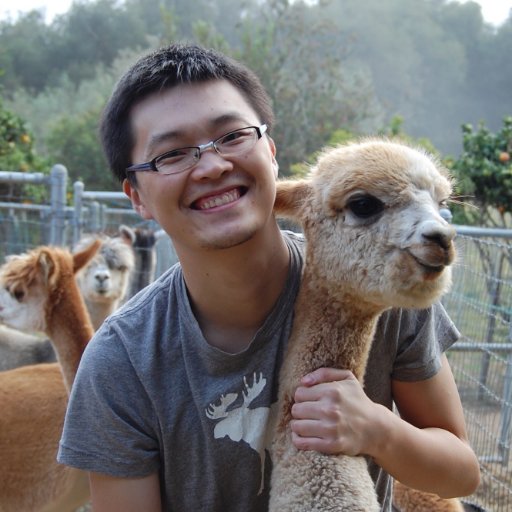
Jingyi Jessica Li (李婧翌)
@jsb_ucla
Followers
3K
Following
332
Media
43
Statuses
525
Professor & Program Head, Biostatistics @FredHutch | Affiliate Professor @UWBiostat | Formerly @UCLA | Junction of Statistics & Biology; Rigor & Reproducibility
Joined March 2018
Fred Hutch Biostatistics is hiring (Asst/Assoc/Full Prof)! We seek scholars who lead with statistical thinking and connect computation, medicine & science across imaging, AI, genomics, clinical trials & cancer prevention. Apply by Dec 1, 2025:
2
20
66
Great science happens at the intersections. STATGEN is a fantastic forum to connect, challenge assumptions, and raise the bar for rigor in genetics and genomics. Submit an abstract by December 15, 2025: https://t.co/yFHKXwqV2U Conference Website:
docs.google.com
STATGEN 2026 (https://statgen26.emory.edu) will be held at Emory University in Atlanta Georgia May 18-20, 2026 . Please use this form to submit a title and an abstract by December 15, 2026 to be...
0
8
25
3/3 With mcRigor, downstream analyses become more reliable: ✅ gene co-expression modules ✅ enhancer–gene associations ✅ temporal expression patterns Benchmarking shows MetaCell & SEACells are better-performing methods.
0
1
8
2/3 At the core of mcRigor is a feature-correlation statistic with a null derived from a double permutation scheme — a brilliant idea by my postdoc Pan Liu https://t.co/kahQzfPhpk mcRigor detects dubious metacells and optimizes method & hyperparameter for a specific dataset.
1
0
3
1/3 Metacells boost power in single-cell RNA-seq & multiome analysis. But without checking homogeneity, they risk forming dubious metacells that bias discoveries. We introduce mcRigor: a statistical safeguard for rigorous metacell analysis. 👉
nature.com
Nature Communications - Aggregating similar single cells into metacells is a common heuristic for sparse data, but risks mixing dissimilar cells. Here, authors present mcRigor, which detects and...
3
34
144
Excited to share our new method ClipperQTL published in @GenomeBiology Built on our p-value-free FDR control framework Clipper, ClipperQTL performs on par with FastQTL and runs up to 500× faster. Big thanks to my former PhD student Heather Zhou! https://t.co/8PvJ1Kvnmj
#eQTL
genomebiology.biomedcentral.com
A central task in expression quantitative trait locus analysis is to identify cis-eGenes, i.e., genes whose expression levels are regulated by at least one local genetic variant. Existing cis-eGene...
1
11
48
I’m deeply thankful for the incredible support and opportunities at UCLA over the past 12 years—ever since finishing my PhD. Grateful for the journey so far and looking forward to this new chapter at the intersection of statistics and biomedical science.
1
0
9
I’m honored to join Fred Hutch as Professor and Program Head of Biostatistics, and as the Donald and Janet K. Guthrie Endowed Chair in Statistics. Excited to be part of a deeply collaborative and scientifically vibrant community with a rich legacy of impact.
29
14
264
I’ll speak on July 16 (2:30pm ET) at NSF@75: Advancing Statistical Science for a Data‑Driven World @InStatsOrg conference. My talk is about an info-theoretic criterion (ITCA) for combining ambiguous class labels: https://t.co/18yDuDAKwa Free registration:
instats.org
PhD-level seminar on NSF@75: Advancing Statistical Science for a Data‑Driven World (Free Conference) with American Statistical Association . Live Q&A plus on‑demand access. Join via your university’s...
0
5
14
The course covers a wide range of topics, including NGS data analysis, single-cell transcriptomics, gene regulatory networks, AI, and protein structure prediction. It combines lectures with hands-on projects for practical experience.
Excited to announce a 2 week Cold Spring Harbor Asia (CSHA) summer course on Computational Genomics Aug 9-23, co organized by Jingyi Jessica Li @jsb_ucla, Qiangfeng Cliff Zhang, and myself. Application deadline June 8. @cshlcourses @CSHANews
https://t.co/rNRuUZExz9. CSHA is
0
4
16
I’m deeply honored to be named a 2025 Guggenheim Fellow—especially as part of the Foundation’s historic 100th class. Grateful to be in the company of so many brilliant artists, scholars, and scientists. #guggfellows2025
6
2
67
Honored to be part of the Farm Animal Genotype–Tissue Expression (FarmGTEx) Project. This study maps RNA-based molecular QTL across 16 farm animal species, unlocking key insights into genetics & physiology. https://t.co/kVD5dT3vda
#FarmGTEx
nature.com
Nature Genetics - The FarmGTEx Project aims to understand genetic control of gene activity under diverse biological and environmental contexts in domestic animals, providing a foundation for...
1
2
43
Thanks @davidliwei for inviting us to this great collaboration! Thanks my PhD student @Qingyang__Wang for extending our simulator scDesign3 to perform the simulation study in this work.
Our most recent Nature Cell Biology paper describes an innovative Perturbation-response Score (PS) method to decode heterogeneous responses of cells to perturbations at single-cell level. Particularly helpful for analyzing Perturb-seq data.
0
0
25
We also present case studies demonstrating the value of simulation in differential abundance testing, dimensionality reduction, network analysis, and data integration. Code is available in an online tutorial ( https://t.co/FhrelzHtXw) that can be easily adapted. 3/
krisrs1128.github.io
Examples illustrating the use of simulation for microbiome analysis, companion to the review article:
0
0
2
We also discuss the trade-offs of simulators: generality, faithfulness, and controllability. Recognizing that all simulators only approximate reality, we review methods to evaluate how accurately they reflect key properties. 2/
1
0
2
In this review article led by Kris Sankaran, we discuss the versatile use of semi-synthetic simulation for microbiome data analysis, including power analysis, methods benchmarking, and reliability analysis. 1/ https://t.co/u6x2EUeNXJ
academic.oup.com
Abstract. High-throughput sequencing data lie at the heart of modern microbiome research. Effective analysis of these data requires careful preprocessing,
2
6
32
@GuanaoYan Many thanks to the editor Dr. Qian Cheng @sgqcheng for choosing and publishing our article on @NatureComms 4/
0
0
2
This is a tremendous effort by my PhD student @GuanaoYan, who is currently on the faculty job market. His interdisciplinary expertise in statistics, spatial transcriptomics and computational biology, and even education will make him a fantastic hire! 3/
1
0
2
We also summarize the statistical tests in 23/34 methods: 📊 Dependence tests 📉 Regression fixed-effect tests 📈 Regression random-effect tests Plus, insights on intuitions, applications, trade-offs & future directions! 2/
1
0
1
How do we detect spatially variable genes (SVGs) in spatial transcriptomics? In our Nature Communications review, we categorize 34 computational methods into three categories: ✅ Overall SVGs ✅ Cell-type-specific SVGs ✅ Spatial-domain-marker SVGs https://t.co/heTI8pCWAi 1/1
link.springer.com
Nature Communications - In spatial transcriptomics data analysis, identifying spatially variable genes (SVGs) is crucial for understanding tissue organization and function. The authors categorize...
4
28
112








